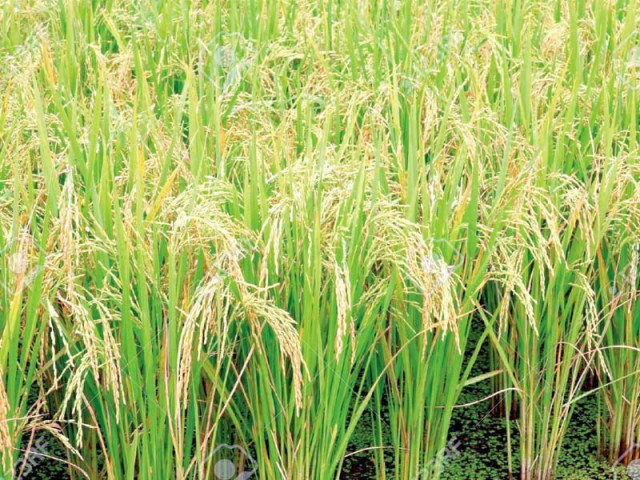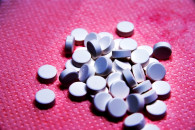Millions to go into improving nutritive value of crops
The project will benefit farmers by not only enhancing soil fertility but also saving cost

PHOTO: FILE
Punjab Agricultural Minister Muhammad Naeem Akhtar Khan Bhabha handed over the cheque of Rs6 million as the first instalment to GCU Lahore Project Manager and Assistant Professor Dr Waqasuddin Khan at a ceremony at the PARB office on Thursday. PARB Chief Executive Dr Noorul Islam and GCU Director Research Dr Ikram ul Haq were also present on the occasion.
Food security experts shift focus to biotechnology
Talking about the project, Dr Khan said that wheat was a major cereal crop of Punjab and grew over a large area of 9.26 million hectares, with 25.48 million tonnes of production.
“Therefore, it has the significant potential to secure food availability for an increasing population,” he added.
However, in Pakistan, 6.3 million hectares of land was saline-sodic. If this saline-sodic area was brought under wheat cultivation, additionally 8.6 million tons of wheat production would be expected, while considering 50% yield reduction in these poor soils.
Low fertilizer efficiency was also a major constraint and burden on the local farming community, especially in economic terms due to poor organic matter content in rice-wheat zones of Punjab’s soils.
Interestingly, Dr Khan said that farmers desired a higher crop yield with minimum expenditure. “This project will benefit our farming community through the availability of a novel nanoparticle enriched in organic product which will not only enhance soil fertility, but also will be a cost effective option in terms of application, labour and the transportation rate,” he added.
Scientists work to enhance crop value
Dr Khan said that iron nanoparticles enriched biochar was in the market thanks to an Australian company. “Now in Pakistan, the development of zinc, iron and composite nanoparticles doped biochar could provide an opportunity to make an excellent organic product which may be a huge landmark in quantitative terms for all the agencies involved in this project,” he added.
Published in The Express Tribune, October 13th, 2017.



















COMMENTS
Comments are moderated and generally will be posted if they are on-topic and not abusive.
For more information, please see our Comments FAQ